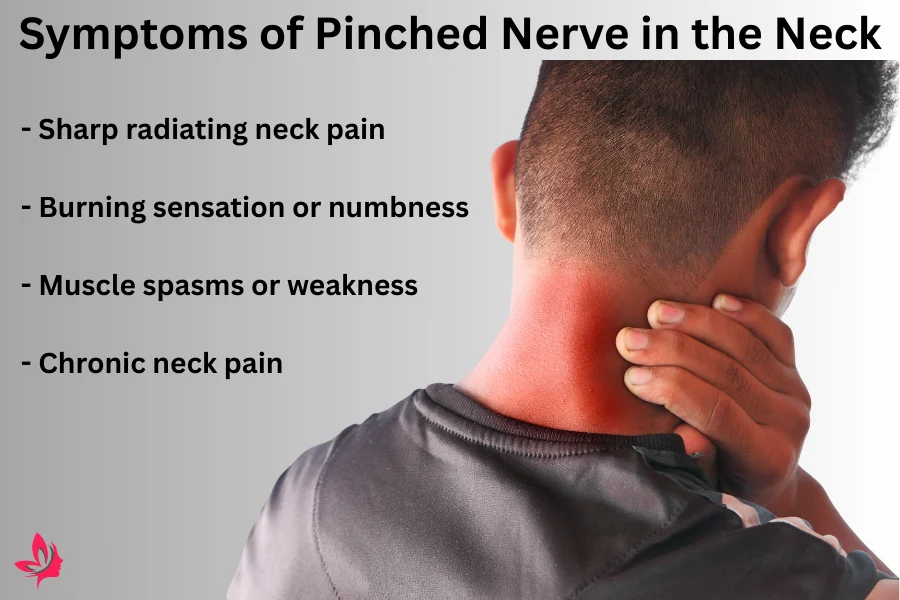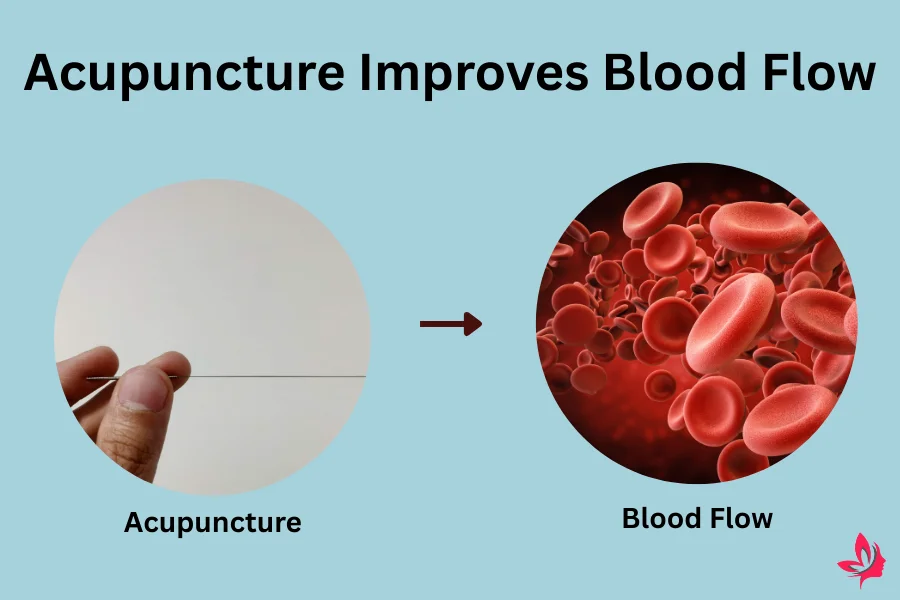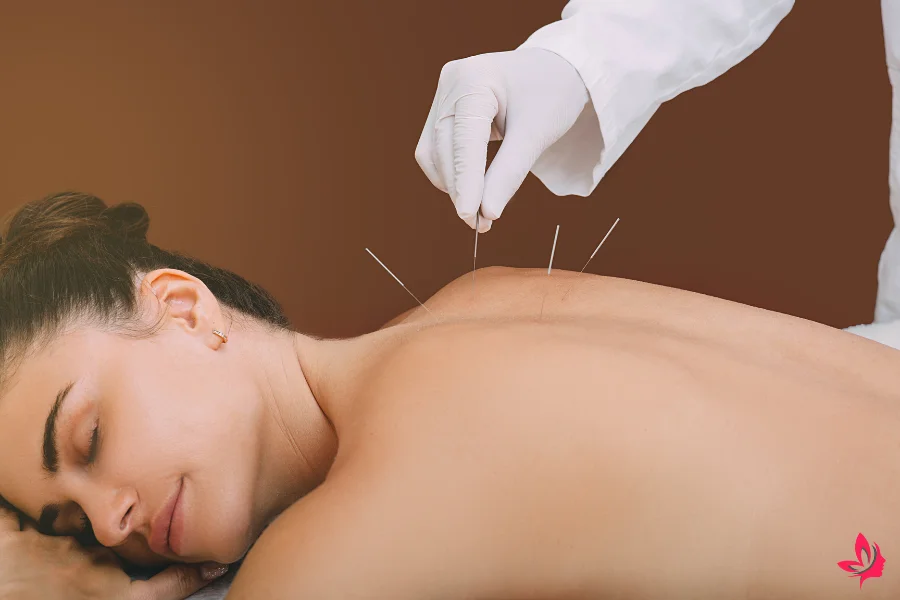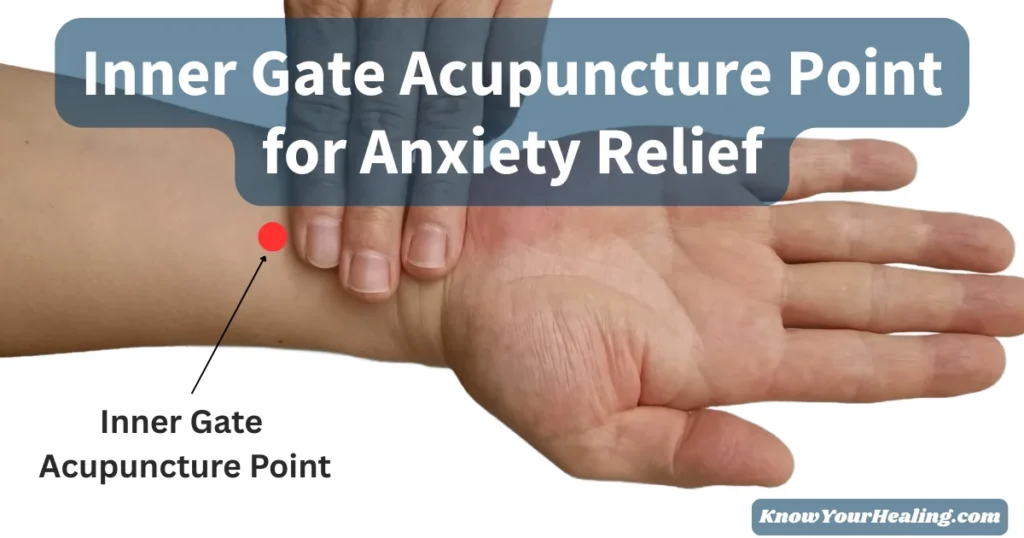Acupuncture for a pinched nerve in the neck can be an effective way to manage pain and discomfort. Experiencing a pinched nerve can disrupt daily life and cause significant discomfort.
Acupuncture holds promise in addressing these issues by improving blood circulation and stimulating nerve function.
The techniques involved in acupuncture can help reduce symptoms like pain and numbness, providing relief and enhancing well-being. Many have found this ancient practice beneficial when used alongside other treatments.
Studies have shown that acupuncture can complement traditional therapies, offering a holistic approach to healing.
Professionals in the field emphasize its role as a supportive treatment rather than a standalone cure. By boosting circulation and relieving tension, acupuncture can be vital in managing neck pain from a pinched nerve.
Understanding its benefits and how it fits into a broader treatment plan is crucial for anyone considering this option.
What is a Pinched Nerve in the Neck?

A pinched nerve in the neck occurs when surrounding tissue, such as bones or muscles, applies much pressure to a nerve. This pressure can disrupt the nerve’s function, leading to pain and discomfort.
Symptoms of a Pinched Nerve
Symptoms include a sharp pain that may radiate from the neck into the shoulder or arm.
Individuals might also experience a burning sensation or numbness and tingling in the affected area.
Muscle spasms and weakness can occur, making regular movements difficult. Chronic neck pain may develop over time if the compressed nerve is not addressed. In severe cases, these nerve symptoms could require medical treatment.
Causes and Risk Factors
Causes of a pinched nerve could include injury, repetitive motions, or health conditions like a herniated disc or spinal stenosis.
Poor posture is a common risk factor impacting nerve function. Chronic conditions like degenerative disease can also contribute to the problem.
Understanding these causes is crucial for developing an effective treatment plan, which might include acupuncture techniques to enhance blood flow and release trapped nerves.
How Poor Posture Contributes
Poor posture plays a significant role in pinching nerves. Sitting or standing incorrectly can lead to unnecessary stress on the spine and neck.
Over time, this can result in muscle tension and nerve compression.
Fixing bad posture may help alleviate nerve pain by reducing pressure on the affected structures.
Engaging in physical therapy, alongside complementary medicine like acupuncture sessions, can be part of a personalized treatment plan to address posture issues and improve overall quality of life.
How Acupuncture Works for Nerve Pain

Acupuncture effectively treats nerve pain by targeting specific points to relieve symptoms.
The use of thin needles and stimulation techniques addresses the issue’s root by improving blood flow and blocking pain signals within the nervous system.
The Role of Acupuncture Points
Acupuncture involves stimulating specific points on the body to ease pain from conditions like a pinched nerve in the neck.
These acupuncture points are carefully selected based on the individual’s symptoms and medical history during an acupuncture session.
By accessing these points, acupuncture can alleviate muscle tension and nerve symptoms contributing to chronic neck pain.
This practice aligns with traditional Chinese medicine, which holds that acupuncture points help balance energy flow or qi, promoting healing and relief.
Thin Needles and Their Effect on Pain Signals
The insertion of thin needles at certain points affects how pain signals are managed in the body.
These needles do not cause much pressure but instead, interact subtly with the nervous system.
They are sometimes used alongside electrical stimulation to enhance their impact.
Through this process, acupuncture can interrupt the transmission of pain signals caused by issues like a compressed nerve or herniated disc.
This technique can be crucial in reducing the burning sensation and sharp pains often experienced in severe cases.
How Acupuncture Improves Blood Flow
Acupuncture treatment also significantly improves blood flow around the affected area, which can support recovery from nerve pain.
Increased blood flow is essential in complementary medicine practices, providing an effective treatment for nerve pain caused by conditions like degenerative disease or poor posture.
Patients often experience a noticeable improvement in their quality of life as blood flow improves.
Benefits of Acupuncture for Chronic Neck Pain

Acupuncture for a pinched nerve in the neck offers various advantages, focusing on pain relief, improved muscle function, and enhanced quality of life.
By using acupuncture treatment alongside traditional methods, individuals may experience reduced symptoms without extensive reliance on medications.
Pain Relief and Muscle Tension Reduction
Acupuncture is an effective treatment for chronic neck pain. It involves inserting thin needles into specific acupuncture points.
These sessions can reduce pain signals and alleviate muscle tension.
Blood flow improves in the affected area, which can help relieve nerve pain and muscle spasms.
Increased circulation helps carry nutrients and oxygen to tissues, promoting healing in severe cases.
The specific points targeted during an acupuncture session can address compressed nerves and reduce symptoms of a pinched nerve.
By decreasing muscle tension, acupuncture helps manage chronic pain and enhances function in the surrounding tissue.
Enhancing Quality of Life Through Acupuncture
For individuals with chronic neck pain, acupuncture can significantly improve their quality of life.
Nerve pain, often caused by poor posture or degenerative disease, can limit daily activities.
Patients may find their pain less disruptive by integrating acupuncture as a complementary medicine.
This alternative therapy offers a personalized treatment plan based on individual needs.
Acupuncture also encourages the gentle flow of energy, aligning with the principles of oriental medicine.
Regular sessions can improve mobility and emotional well-being, making everyday tasks more manageable. Many individuals report feeling more relaxed and active following acupuncture treatments.
Comparing Traditional Treatments and Alternative Treatments
While traditional treatments like medications and physical therapy provide relief, acupuncture offers a non-drug approach.
Acupuncture techniques aim to balance the flow of qi, and they may have fewer side effects than conventional treatments.
It can be an option when other methods, like spinal injections or surgery, are either unsuitable or ineffective.
Alternative treatments like acupuncture can be combined with traditional treatments for a comprehensive approach to chronic neck pain management.
Tailoring treatments to an individual’s medical history and needs is crucial.
By doing so, acupuncture can complement traditional approaches, leading to a more complete management plan for chronic neck pain.
The Acupuncture Session: What to Expect

Acupuncture for a pinched nerve in the neck involves a series of specific steps to ensure effective treatment.
Patients can expect a detailed review of their medical history and a focus on targeting specific points for pain relief. Various techniques, including electrical stimulation, help improve blood flow and alleviate nerve pain.
Initial Consultation and Medical History Review
During the initial consultation, an acupuncturist assesses the patient’s medical history to tailor the acupuncture session effectively.
The acupuncturist asks about the symptoms of a pinched nerve, such as a burning sensation or muscle tension, and notes any existing conditions, such as spinal stenosis or carpal tunnel syndrome.
Understanding these factors allows the practitioner to develop a personalized treatment plan.
Patients should communicate their needs and concerns so that the acupuncturist can focus on effective treatments for their symptoms.
This step ensures the treatment addresses the root cause of the nerve pain, enhancing the overall effectiveness of acupuncture.
Specific Points Targeted During Treatment
Acupuncture points targeted during treatment are chosen based on the patient’s symptoms and specific needs.
For a pinched nerve in the neck, thin needles are placed along the pathway of the affected area to relieve pressure and improve the flow of energy or qi.
These points can help reduce sharp pains, muscle spasms, and other discomforts associated with poor posture and repetitive motions.
Focusing on specific acupuncture points, the session aids in restoring balance within the nervous system and surrounding tissue, leading to better management of chronic neck pain.
Use of Acupuncture Techniques and Electrical Stimulation
During the session, acupuncture techniques may include inserting thin needles into strategic points around the affected area to encourage blood flow and alleviate pain signals.
In severe cases, electrical stimulation may be applied to enhance the effectiveness of acupuncture.
This method involves attaching small electrodes to the needles to deliver mild electrical pulses.
Such techniques are part of a broader category of alternative treatments to offer an effective nerve treatment.
Integrating electrical stimulation can boost the therapeutic effects, supporting the conventional treatments for degenerative diseases that can compress nerves.
Effectiveness of Acupuncture for Severe Cases

Acupuncture for a pinched nerve in the neck can be beneficial, especially in severe cases involving chronic pain or medical conditions.
This section explores how acupuncture can address situations like herniated discs, manage ongoing pain, and create tailored treatment strategies.
Addressing Herniated Disc and Spinal Stenosis
In severe cases like herniated discs and spinal stenosis, acupuncture may aid in relieving pressure and pain.
Thin needles at specific points can help improve blood flow and reduce nerve compression.
Increased circulation can decrease inflammation and relieve the sharp pains associated with these conditions.
Traditional or alternative treatments may also incorporate complementary therapies to enhance the overall effectiveness of acupuncture.
Managing Chronic Pain and Degenerative Disease
Chronic neck pain and degenerative diseases such as osteoarthritis can benefit from acupuncture treatment.
By targeting acupuncture points, acupuncture can modulate pain signals and improve the overall functioning of the nervous system.
This method offers a non-invasive option compared to conventional treatments.
Through repeated acupuncture sessions, patients may experience reduced symptoms of a pinched nerve and improved quality of life.
Creating a Personalized Treatment Plan for Individual Needs
Creating a personalized acupuncture treatment plan involves considering a patient’s unique medical history and symptoms.
Practitioners may focus on specific areas experiencing burning sensations or muscle spasms.
Acupuncture techniques are tailored to individual preferences, ensuring an effective treatment path.
This approach can support nerve treatment while addressing muscle tension or other complications.
A personalized treatment plan can offer effective therapy for managing pain and other nerve symptoms.
Final Thoughts
Acupuncture for a pinched nerve in the neck can offer a promising alternative or complement to traditional treatments. This therapy works by stimulating nerve function and potentially enhancing blood circulation.
While not a standalone cure, it might alleviate pain and discomfort, making it easier for patients to manage their symptoms.
This method generally poses a low risk of complications, making it a viable option for those hesitant about more invasive procedures.
Many find relief in using acupuncture alongside other treatments.
It’s crucial to consult healthcare professionals to determine the best approach tailored to individual needs.
Key Takeaways:
- Effective Compliment: Acupuncture is often used as a supplement to traditional therapies.
- Pain Relief: May help alleviate discomfort and enhance circulation.
- Low Risk: Generally considered safe with minimal side effects.
Acupuncture could be a helpful solution for those dealing with neck pain from a pinched nerve, promoting an approach that blends traditional and alternative treatments.
Frequently Asked Questions
Acupuncture can be a helpful treatment for those with a pinched nerve in the neck. It provides relief by improving circulation and reducing inflammation. This section covers common questions about acupuncture’s efficacy, application, and advantages.
Can acupuncture help a pinched nerve in your neck?
Yes, acupuncture can help relieve a pinched nerve in your neck by targeting specific acupoints to reduce pressure on the nerve. It supports pain relief and healing, promoting better blood circulation.
What is the fastest way to fix a pinched nerve in your neck?
The fastest recovery may involve a combination of rest, gentle stretching, and treatments like acupuncture or physical therapy.
Consulting with healthcare professionals is crucial to choose the best approach for quick recovery.
What is better for a pinched nerve, acupuncture or chiropractor?
Both acupuncture and chiropractic care offer benefits.
A comparison can be complex, as acupuncture focuses on stimulating nerves and blood flow while chiropractors adjust spinal alignment.
It often depends on personal preference and specific needs.
How long does it take for acupuncture to work for nerve pain?
The relief from acupuncture can vary. Some individuals notice improvements after just a few sessions, while others may take several treatments.
It often depends on the severity of the nerve pain.
How many sessions of acupuncture for a pinched nerve?
The number of sessions needed can vary.
Some may find relief within a few sessions, but others require ongoing treatments. This often depends on the individual case and severity.
What should you not do with a pinched nerve in your neck?
Avoid actions that could aggravate the condition, such as heavy lifting, bad posture, or sudden neck movements.
It’s important to follow advice from a healthcare professional for specific guidelines.
How long does it take for acupuncture to work for neck pain?
Relief from neck pain through acupuncture can be noticed after a few sessions.
However, the total time may vary depending on the individual’s condition and response to treatment.
Where do they put acupuncture needles for neck pain?
Needles are strategically placed at specific acupoints around the neck and possibly other related areas to alleviate pain and improve nerve function.
How successful is acupuncture for neck pain?
Many people find acupuncture a successful treatment for neck pain, as it can reduce muscle tightness and improve overall neck mobility.
Is it OK to massage pinched nerve in neck?
Gentle massage may provide some relief, but it is essential to be cautious and consult with a professional. The incorrect technique could exacerbate the issue, so guidance from a therapist or doctor is advisable.




